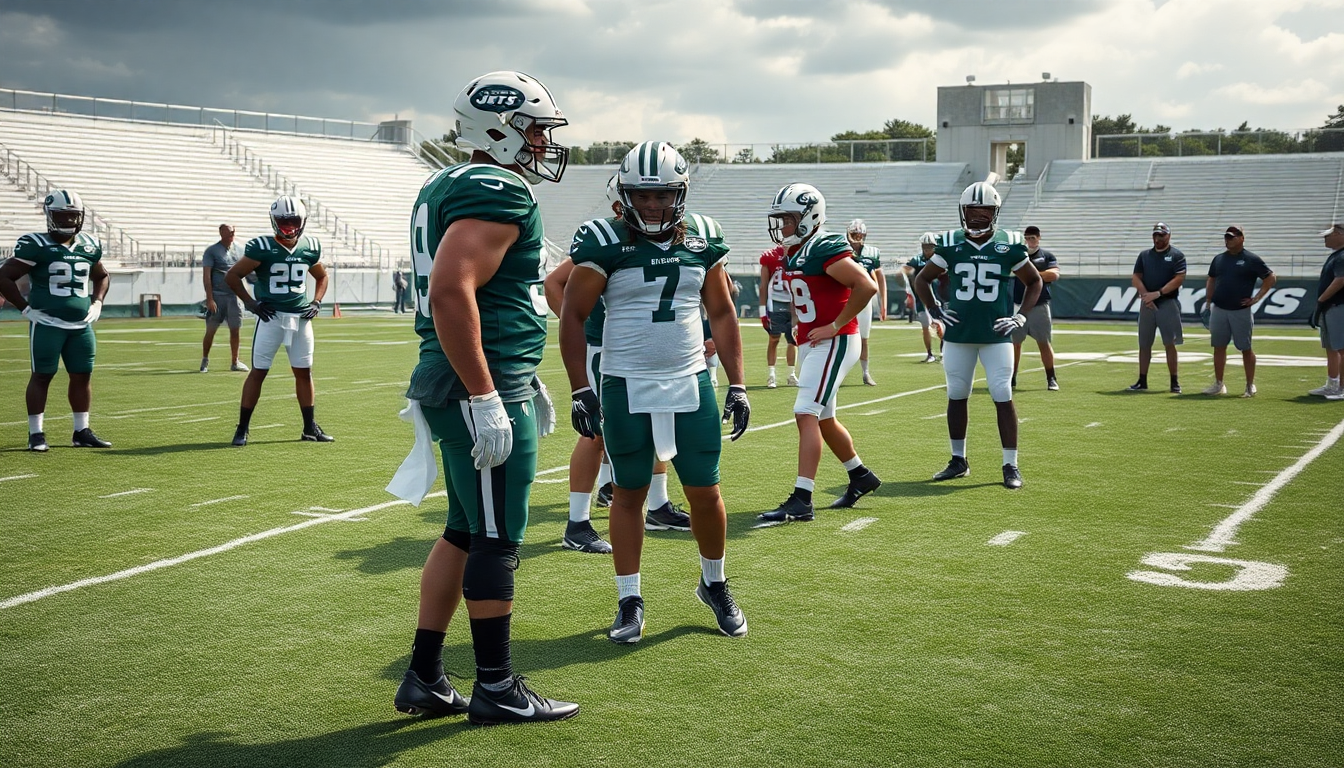Table of Contents
The New York Jets are at a crossroads this season, and it all hinges on quarterback Justin Fields. After suffering a lower leg injury during training camp, fans are left wondering: can the Jets finally secure their first winning season in over a decade? Fields, who was brought in as the new face of the franchise following Aaron Rodgers’ departure, is now the focal point of concern as his injury could drastically alter the team’s trajectory.
What’s Going On with Justin Fields?
At just 26 years old, Justin Fields signed a hefty two-year contract worth around $40 million to take on the starting quarterback role for the Jets. His early performances in training camp were promising, but this recent setback has thrown a wrench into the team’s offensive game plan. Eyewitness reports indicate Fields was carted off the field with his cleat off, raising immediate alarms about how serious this injury might be.
Fields’ journey to the Jets came after a mixed bag of a season with the Pittsburgh Steelers, where he appeared in 10 games and started six. He boasted a respectable completion rate of 65.8%, racking up 1,106 passing yards, five touchdowns, and just one interception. Plus, his dual-threat capability shone through with five rushing touchdowns. Yet, the fact that he was benched in favor of another quarterback after just six games illustrates the unpredictability of his tenure in Pittsburgh.
The Jets’ Quarterback Depth Chart
With Fields potentially sidelined, the Jets will likely lean on their backup quarterbacks, including the seasoned Tyrod Taylor. At 35, Taylor brings 14 years of NFL experience to the table. His career record stands at 28-28-1 across 58 starts, and he has proven that he can step up when needed, having completed 64.4% of his passes and thrown for five touchdowns in limited action last season.
Another player to watch is Garrett Wilson, the Jets’ top wide receiver. He shares a college connection with Fields, which could have fostered a strong on-field chemistry. If Fields ends up sidelined for a while, Wilson’s ability to adapt and perform with a new quarterback will be crucial. The depth chart also features Adrian Martinez and Brady Cook, who will need to rise to the occasion if Taylor can’t seize the moment.
What Does This Mean for the Jets’ Season?
The Jets’ hopes for a successful season don’t just depend on Fields’ health; they also need to rely on the overall strength and adaptability of their roster. If Fields is out for an extended period, the team will have to tweak its offensive strategies to fit the skills of Taylor or whoever steps in. This scenario puts a lot of pressure on the coaching staff to create game plans that can flexibly adapt to changes in quarterback dynamics.
Looking at the bigger picture, the Jets are navigating a fiercely competitive division. Every game is crucial—not just for playoff hopes but also for laying down a long-term strategy for team development. Successfully transitioning to a backup quarterback could not only save the season but also provide invaluable experience to younger players, laying the groundwork for future success.
In summary, Justin Fields’ injury brings both hurdles and potential opportunities for the New York Jets. As the team gets ready for the upcoming season, the spotlight will be on their ability to adapt and bounce back in the face of adversity. Will they rise to the challenge?


